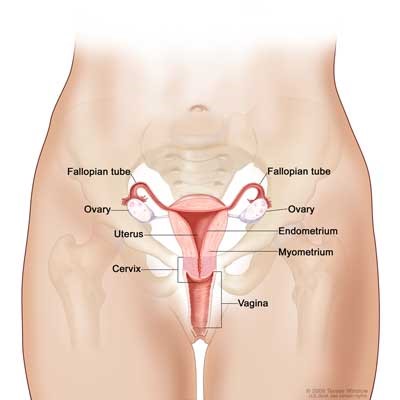Womb cancer or sometimes also known as endometrial or uterine cancer is the most common gynaecological cancer in Singapore women with rising incidence. Endometrial cancer (uterine cancer) is a type of cancer that begins in the uterus. The uterus is the hollow, pear-shaped pelvic organ in women where fetal development occurs. Endometrial cancer (uterine cancer) begins in the layer of cells that form the lining (endometrium) of the uterus.

Endometrial (uterine) and ovarian cancers are common in women who work and live in an urban environment where they are likely to have fewer pregnancies, breastfeed less and are more likely to have conditions such as obesity and diabetes. These factors alone do not explain why women get endometrial cancer, but they are factors that are more commonly found in women who have endometrial cancer.
The endometrium is the lining of the womb or uterus. It is into this lining that the very early foetus or embryo implants and continues to grow, making the uterus its home for the nine months of pregnancy till birth. This important tissue layer changes over entirely every single month, growing in anticipation of a pregnancy then shedding when no pregnancy occurs.
Cancerous changes in the lining of the womb typically take place in a woman’s late 40s and cancer of the endometrium is most commonly diagnosed in women in their 50s and 60s.
The one very bright star in the dark night of an endometrial cancer (uterine cancer) diagnosis is that >70% of cancers are diagnosed in the very first stage of development, also known as FIGO Stage I. Unlike ovarian cancer, most women with endometrial cancer (uterine cancer) are found to have their disease before it has a chance to spread outside of the uterus. This is because even early or pre-cancerous changes in the endometrial lining will result bleeding that most women will know to be “abnormal”. Because there are troublesome signs that appear early, most women will see a doctor, make the diagnosis and get timely treatment. This is why endometrial cancer (uterine cancer) is unlikely to be deadly although it is a very common gynaecological cancer.
You can beat endometrial cancer (uterine cancer), most women do. All it takes is the courage to get tested if you have troubling symptoms, get treated and move on with your life and endometrial cancer (uterine cancer) need not trouble you again for the rest of your days.


















